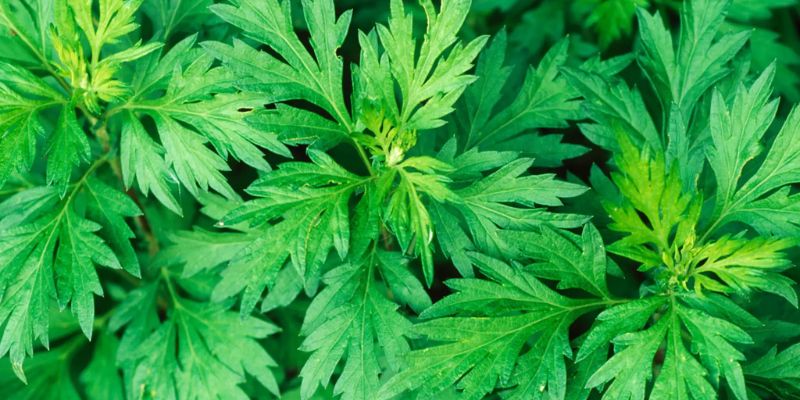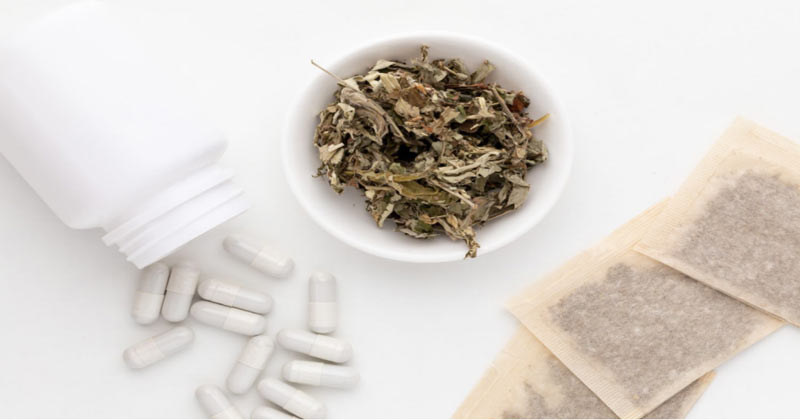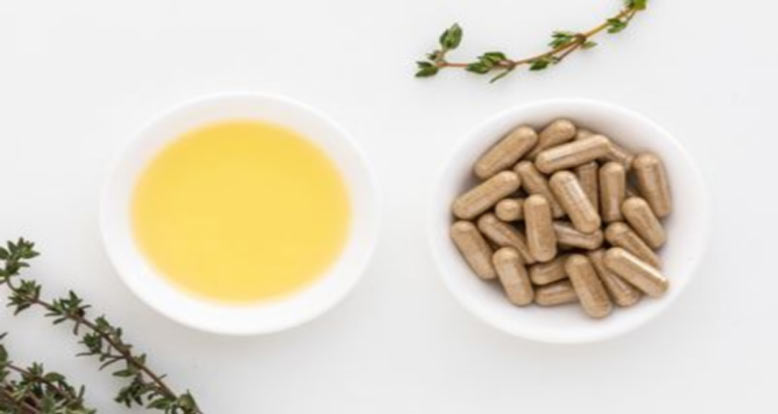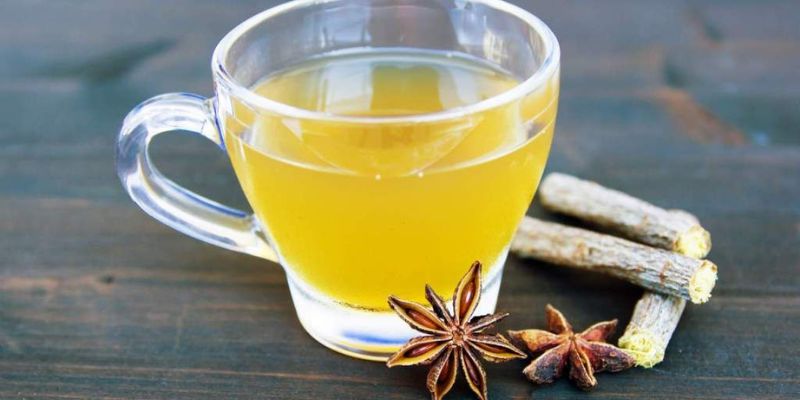
Mugwort is a herb used for centuries in different cultures worldwide. It's known to have medicinal, spiritual, and even culinary applications. In traditional Chinese medicine, it's used to treat stomachaches, insomnia, and headaches, among other ailments.
Mugwort incorporates into religious ceremonies such as Native American rituals and an ancient form of divination called scrying. But there is more than meets the eye regarding mugwort's uses - let's explore what this mysterious plant can do!
What to Know About Mugwort Definition
The mugwort herb (Artemisia vulgaris) is a perennial plant native to Europe, East Asia, and Alaska. It grows in damp areas such as riverbanks and meadows and has been used for centuries in many cultures.
1 Medicinal Uses
Mugwort has been used for medicinal purposes, from treating stomachaches and insomnia to soothing headaches and skin conditions. In traditional Chinese medicine, it's often used as an anti-inflammatory agent or digestive aid. It has also been said to improve circulation and boost the immune system.
2 Spiritual Uses
There are many spiritual uses of mugwort as well - it's believed to have magical properties that can protect against bad luck and evil spirits. In some cultures, mugwort is burned as incense to purify a space and remove unwanted energies. It's also used in various religious rituals, such as Native American ceremonies and scrying (a form of divination).
3 Culinary Uses
Mugwort isn't just for medicinal and spiritual uses - it can also be cooked into dishes! The plant has a unique flavor that many compare to menthol or eucalyptus so that it can add a unique kick to sauces, soups, salads, stews, and more.
4 Safety Precautions
Mugwort is generally safe to use, but it should not be consumed in large quantities as it can cause gastrointestinal upset or even contact dermatitis. It's also important to consult a doctor before using mugwort for medicinal purposes.
No matter how you choose to use mugwort, it's sure to bring an interesting and unique flavor and experience into your life! With its many potential benefits, this herbal marvel is worth trying out.
Top Benefits Mugwort
1. Anti-inflammatory
Mugwort has natural anti-inflammatory properties that can help reduce swelling and discomfort from inflammation and joint pain.
2. Digestive aid
Mugwort is known to stimulate the digestive system, helping to improve digestion and absorption of nutrients.
3. Enhances circulation
Drinking tea made from mugwort leaves can help increase blood flow throughout the body, improving overall health and energy levels.
4. Boosts immune system
Mugwort contains many vitamins and minerals that benefit the immune system, making it a great remedy for boosting immunity against colds or other illnesses.
5. Skincare
Applied topically, mugwort can be used as an antiseptic to treat skin conditions such as rashes, eczema, or psoriasis.
6. Reduces stress
Mugwort's soothing properties can help reduce stress levels and promote relaxation.
7. Calms nerves
Mugwort has calming effects on the nervous system and can help relieve anxiety and insomnia.
8. Increases energy
Drinking tea made from mugwort leaves can increase energy levels throughout the day by helping to regulate hormones like adrenaline and serotonin in the body.
9. Improves mood
Mugwort contains compounds that can improve mood and overall well-being, making it a great remedy for depression or sadness.
10. Detoxifies the body
Mugwort is known to help detoxify the body by eliminating toxins and purifying blood.
11. Protects against bad luck and evil spirits
In some cultures, mugwort is believed to have magical properties that can protect against bad luck or negative energies. It's often used in spiritual rituals such as Native American ceremonies and divination practices.
Possible Side Effects
1. Nausea
Mugwort can cause nausea if taken in large amounts or mixed with other herbs and medications.
2. Diarrhea
Drinking tea made from mugwort leaves can cause diarrhea if taken in large doses.
3. Allergic reactions
Some people may experience allergic reactions to mugwort, including rashes, hives, or difficulty breathing.
4. Interactions with other drugs
Mugwort can interact with certain medications, so it's important to talk to your doctor before taking it if you are on any prescription medications or supplements.
5. Headache
Using too much mugwort can lead to headaches due to its stimulating effects on the nervous system.
6. Dizziness
In some cases, taking mugwort can cause dizziness or lightheadedness due to its effects on circulation.
7. Insomnia
Mugwort should not be taken before bed as it may stimulate the brain and cause insomnia if taken too close to bedtime.
8. Liver damage
High doses of mugwort can lead to liver damage over time, so it's important to take only recommended amounts when using this herb medicinally.
Dosage and Preparation
When consumed in small amounts, mugwort is generally safe when used properly. However, speaking with a qualified healthcare practitioner before using mugwort for medicinal purposes is important. The suggested dosage and preparation of mugwort will vary depending on its intended use.
Brewing tea from dried or fresh leaves is often recommended for digestive complaints and other internal issues. To make a cup of tea, simply steep two teaspoons of dried leaves or one teaspoon of fresh leaves in boiling water for about 10 minutes. Drinking this herbal tea up to three times daily can relieve common ailments such as upset stomachs and headaches.
Mugwort can also be used topically on the skin to treat rashes, eczema, and psoriasis. To make an herbal poultice, grind fresh leaves into a paste and apply directly to the affected area. Leave it on for up to 20 minutes before removing it and washing it with warm water.
Additionally, mugwort essential oil can be used in aromatherapy or massage therapy for its calming properties. It's best to dilute the oil with a carrier oil such as jojoba or almond before applying it topically or diffusing it into the air.
FAQs
Q: How do you use mugwort?
A: There are many ways one can use mugwort! Medicinally, it can be taken in a tea or tincture form to help with digestive issues and insomnia. It is also an effective insect repellent for those who wish to avoid using chemicals. For spiritual purposes, mugwort has been used in divination practices such as scrying and dream work. Additionally, its leaves can be burned to protect against negative energy and encourage psychic visions. Culinarily, mugwort is often added to dishes such as dumplings or stews for flavor.
Q: Where can I get mugwort?
A: Mugwort grows wild in many parts of the world and is generally easy to find near roadsides or open fields. It is also available in fresh and dried forms from many health food stores or online retailers. Additionally, it can be grown at home if you have access to a yard or garden space.
Q: Are there any other benefits to using mugwort?
A: Yes, in addition to its medicinal and spiritual properties, mugwort also has culinary applications. For example, it is often used as a seasoning in dishes such as dumplings or stews. It is sometimes added to teas for flavor or aroma. Additionally, the herb is known to be an effective insect repellent when burned or applied topically.
Conclusion
Mugwort is an ancient herb used for centuries as a medicinal, spiritual, and culinary aid. It can help treat stomachaches, headaches, insomnia, skin conditions, etc. Additionally, it is believed to have protective properties against bad luck or evil spirits. Despite its potential benefits, there are also some side effects to be aware of when using mugwort. If you'd like to try this mysterious herb for yourself but need help figuring out where to start - consult your doctor before taking any new herbal remedies!




